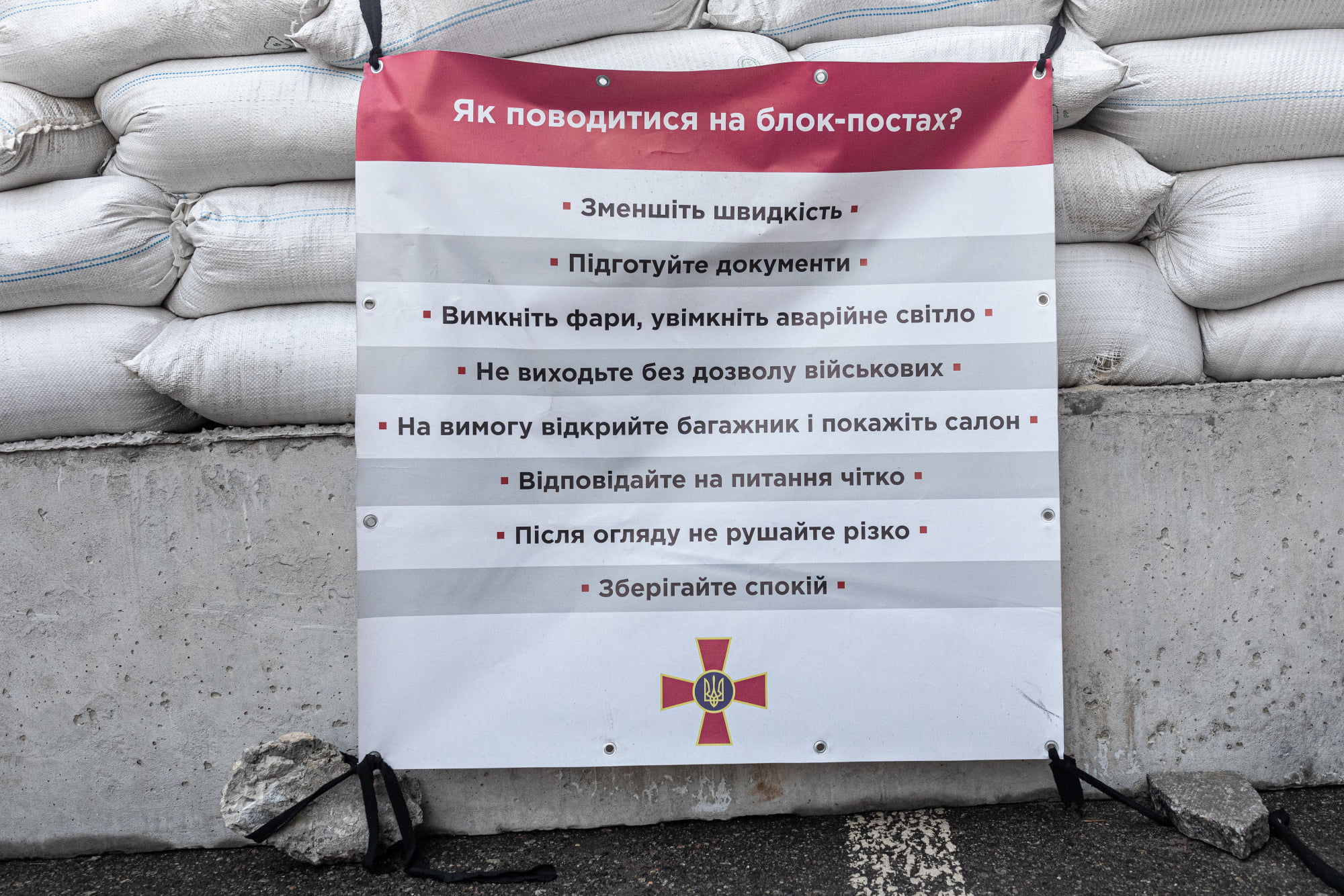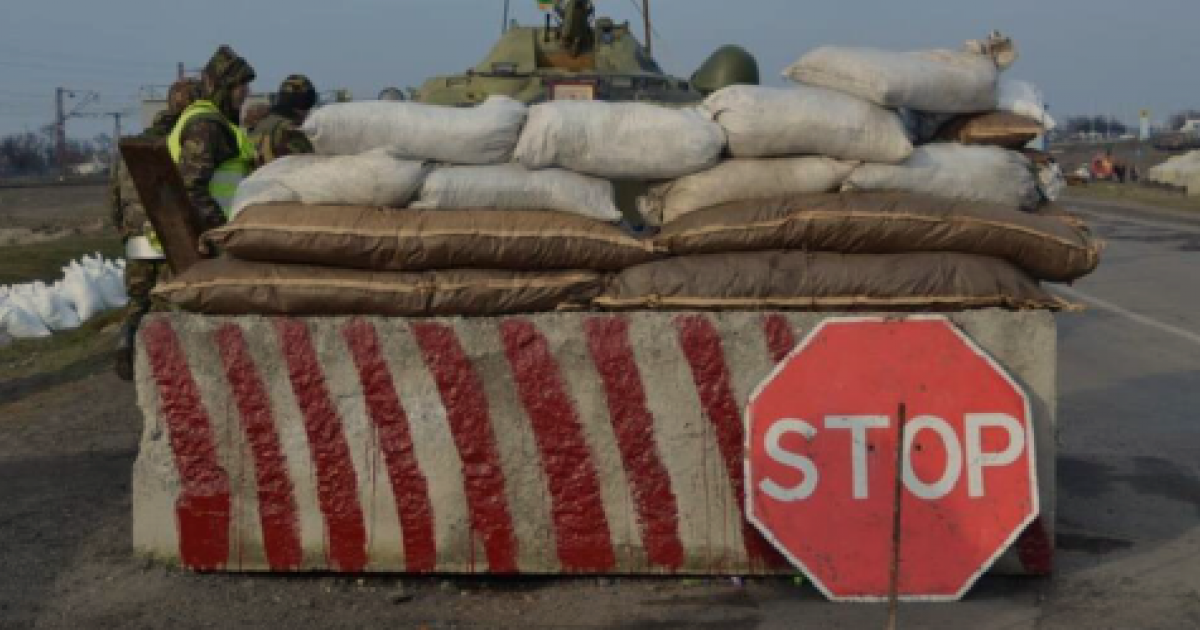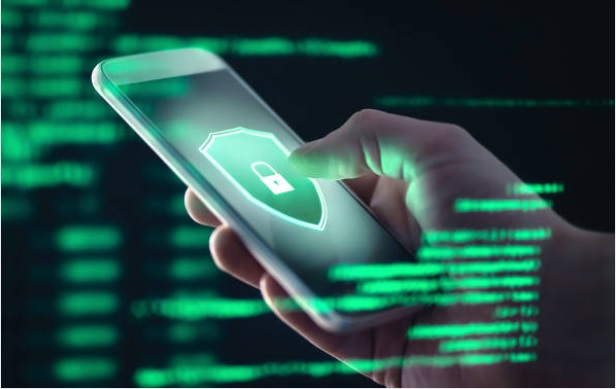Checkpoints are man-made structures on roads or other paths that are used by the military and combatants to perform tasks related to defense, control, deterrence, filtration, detection, and so on. Usually, checkpoints are divided into permanent or stationary and temporary, for carrying out specific tasks during a certain period of time. In the realities of the russian-Ukrainian war, checkpoints are being guarded by one or more state bodies and formations: the Armed Forces, the Territorial Defense, the National Police, the Security Service, special units, and so on. Usually, a checkpoint has a person who is responsible for organizing its functioning and is the commander. The work at the checkpoint is organized in such a way as to ensure its consistent operation during the day and at night.
Therefore, we can draw some conclusions about how checkpoints affect the work of journalists:
- Checkpoints are being guarded by tired armed people who subconsciously look for opportunities for emotional relief.
- Inspections take some time, and the driver’s actions determine how long it will be.
- Duty officers perform specific tasks to search for suspicious persons.
- The work at a checkpoint is not dependent on daylight hours or weather, which may affect the state of the inspectors.
- There is a person responsible for the operation of the checkpoint.
The Ministry of Defense proposed certain rules of conduct at checkpoints (pictured).

Let us consider them in more detail:
- Reduce speed. If the checkpoint is large, go to the inspector that the duty officer at the entrance directs you to.
- Turn off the headlights and turn on the emergency lights. It is recommended to turn on the lights inside the car at night so you can be identified. Keep your hands in sight and do not make any sudden movements. Do not use your mobile phone. If you have a very urgent call, ask the person to hang on the line and put the phone aside.
- Prepare your documents. Show the documents by holding them open in your hands, do not hand them over unless asked to do so. If possible, print your accreditations in a larger format (A4) and put them in the lower corner of the windshield.
- Do not come out without the military’s permission. If for any reason you need to come out of the car or do something you have not been asked to do, tell it to the inspector in a CLEAR CONFIDENT VOICE (for example, “The rear windows are locked. You can open the door. OR I can come out and open the door for you”).
- Upon request, open the trunk and show the car’s interior. The person in charge of communicating with the inspector (it is better to agree who it will be in advance) should know the contents of each bag (clothes, equipment, sleeping bags, spare parts, bulletproof vests (which should not be packed in bags) to clearly and quickly explain what is inside what. If someone’s personal belongings must be opened, it must be done by the owner of the bag or by the group leader with the owner’s permission.
- Answer the questions clearly. It is best to have only one member of your group sitting in the front seat. Don’t say anything but greetings (depending on the situation) until you are asked. You need to know exactly where you are coming from and where you are going. This information should be known to all team members, and it should be identical.
- After the inspection, do not drive off abruptly. Consider the oncoming traffic. Keep the distance and interval for maneuver.
- Keep calm. Do not give lengthy replies, answer briefly and to the point. In case of a conflict, call the commander. Do not respond to provocations from tired people with weapons, be polite and calm.
Just in case, have the phone numbers of press officers and the police department of the district where you are working written down in advance.
If someone asks you for a password, this is a provocation. Civilian journalists do not have the right to answer to the password even if they came to know it, it is a MILITARY ONLY communication algorithm.
Remember that it is forbidden to film at checkpoints, and the time invested in getting a temporary filming permit is rarely worth the content obtained and the nerves of all the participants in the process.
Anton Skyba, journalist, IMI safety coach


